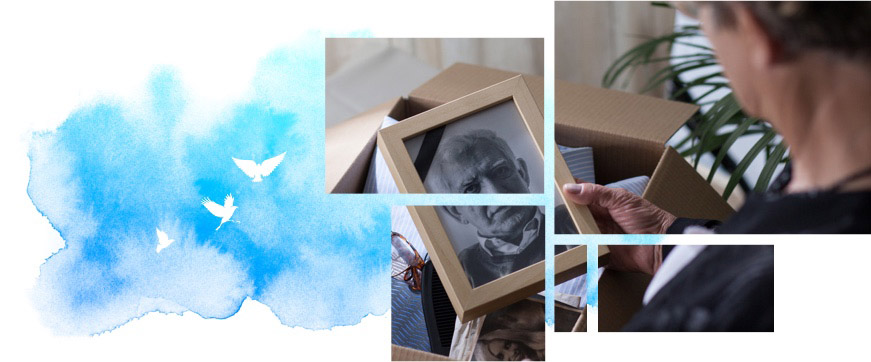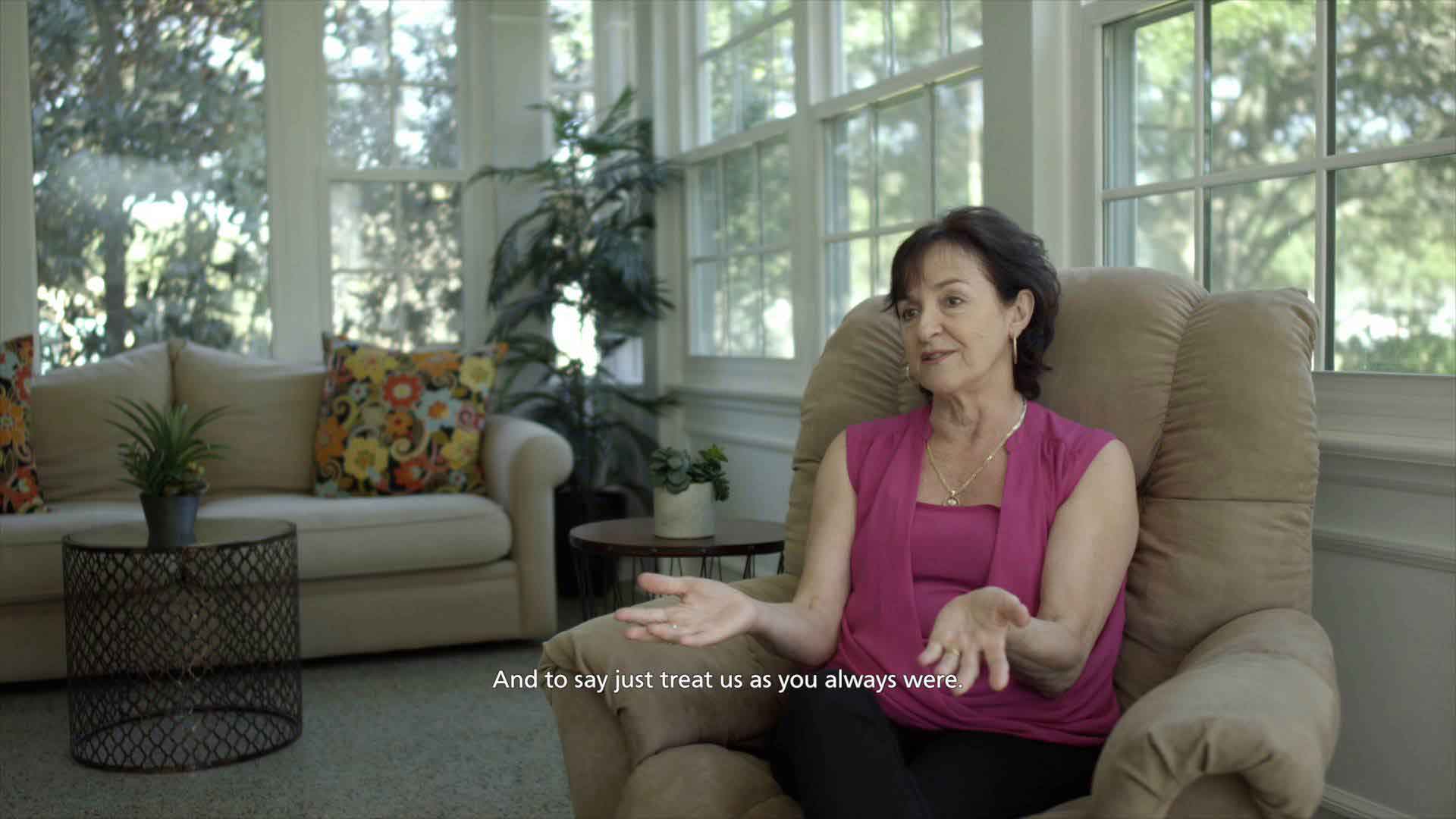Coping With the Loss of a Loved One to Mesothelioma
Written by Michelle Whitmer • Edited By Walter Pacheco
Asbestos.com is the nation’s most trusted mesothelioma resource
The Mesothelioma Center at Asbestos.com has provided patients and their loved ones the most updated and reliable information on mesothelioma and asbestos exposure since 2006.
Our team of Patient Advocates includes a medical doctor, a registered nurse, health services administrators, veterans, VA-accredited Claims Agents, an oncology patient navigator and hospice care expert. Their combined expertise means we help any mesothelioma patient or loved one through every step of their cancer journey.
More than 30 contributors, including mesothelioma doctors, survivors, health care professionals and other experts, have peer-reviewed our website and written unique research-driven articles to ensure you get the highest-quality medical and health information.
About The Mesothelioma Center at Asbestos.com
- Assisting mesothelioma patients and their loved ones since 2006.
- Helps more than 50% of mesothelioma patients diagnosed annually in the U.S.
- A+ rating from the Better Business Bureau.
- 5-star reviewed mesothelioma and support organization.
Testimonials
My family has only the highest compliment for the assistance and support that we received from The Mesothelioma Center. This is a staff of compassionate and knowledgeable individuals who respect what your family is experiencing and who go the extra mile to make an unfortunate diagnosis less stressful. Information and assistance were provided by The Mesothelioma Center at no cost to our family.LashawnMesothelioma patient’s daughter
How to Cite Asbestos.com’s Article
APA
Whitmer, M. (2023, June 19). Coping With the Loss of a Loved One to Mesothelioma. Asbestos.com. Retrieved April 19, 2024, from https://www.asbestos.com/support/mesothelioma-grief-guide/
MLA
Whitmer, Michelle. "Coping With the Loss of a Loved One to Mesothelioma." Asbestos.com, 19 Jun 2023, https://www.asbestos.com/support/mesothelioma-grief-guide/.
Chicago
Whitmer, Michelle. "Coping With the Loss of a Loved One to Mesothelioma." Asbestos.com. Last modified June 19, 2023. https://www.asbestos.com/support/mesothelioma-grief-guide/.
It’s never easy to lose someone you love. Losing a loved one to an aggressive cancer such as mesothelioma can be even more difficult, because a family member or close friend may be taken far too soon, bringing a sense of shock with feelings of grief, sadness and even depression.
There is no right way to grieve. It’s normal to be sad, angry, upset or any other emotion you may be feeling.
Everyone copes with a loss in their own way. It is an individual process and a natural part of life.
While life won’t be the same after the loss of someone important to you, moving through the grieving process will help you adjust.
There is no timetable for mesothelioma-related grief. It lasts as long as it takes to make this adjustment. It could be months — or even years.

Experiencing Mesothelioma Grief
Coping with the loss of a loved one to mesothelioma is exhausting.
As painful as it may be, it is important to experience all the thoughts and emotions that accompany the death of someone close to you.
Don’t be afraid to talk about your loss with family, friends or a counselor. Joining a grief support group is a great way to share your memories, express sadness and meet others experiencing similar emotions.
Never feel as though you must endure loss alone or be “strong” for any reason. Grief can bring even the “strongest” person to their knees.
It is important to know the difference between mourning and grief.
Grief is the internal experiences we feel when we lose a loved one. These experiences include fear, sadness, loss, regret or guilt. Mourning is what we physically express, such as crying, wearing black, visiting a grave site or talking about the loved one we lost, when we show our internal feelings of grief.
When mourning lingers for a long time without progress, it is known as complicated grief or unresolved grief.
Symptoms of complicated grief include:
- An inability to accept the loss or a continued disbelief in the death of a loved one
- Feelings of intense sorrow, emotional pain and anger
- Avoiding reminders of the loss
- Blaming others or oneself for the death
- An intense loss of desire to pursue interests or plan for the future
- Feeling that life is meaningless
- A continuous longing for the deceased
- An inability to enjoy positive memories about the loved one
Adjustment to life without a loved one may take months for some and years for others.
Neither is wrong, and you should never compare your grief process to others. In many cases, grief is not experienced in a concurrent amount of time. Emotions, behaviors and other responses may come and go.
Even after the initial grief period has ended, there will always be moments where memories or special occasions such as birthdays and anniversaries “trigger” feelings of grief.
Grief Versus Major Depression
While depression may be a result of grief, it is important to understand they are not one in the same.
It is common for people to be in a depressed mood or state after a loved one dies. Feelings of pain, anger and sadness are normal, but these emotions can develop into major depression, a far more serious problem.
Roughly one in five bereaved people will develop major depression, which is also called clinical depression, according to the American Cancer Society.
Symptoms of major depression can include:
- Thoughts of being worthless or hopeless
- Ongoing thoughts of death or suicide
- An inability to perform daily tasks and activities
- Sadness
- Poor concentration and decision making
- Slower reactions
- Significant weight loss, weight gain, decrease in appetite or an increase in appetite
The bereaved person should seek professional help if these symptoms last more than two months after the loss. A person should get help from a mental health professional or medical doctor right away if they try to hurt themselves or plan to do so.

Supporting Others Who Are Grieving
When someone you love passes away, it often means others in your family or circle of friends may also be grieving. You may find yourself trying to support others while you are grieving yourself. It is important to show others you are there for them during a difficult time.
Ways to show support include:
- Listening to the grieving person. Taking time to listen can go a long way. Some people may not be looking for advice but rather an open ear to vent their feelings. Let the grieving person lead the conversation. Sometimes they may not want to talk about their feelings or the loved one they lost and instead discuss hobbies, sports or entertainment.
- Accepting all feelings. Acknowledging grief reactions lets the person know the emotions are natural and necessary. You should never pass judgment on how well a person is coping with a loss.
- Respecting an individual’s needs. Offer to be there for them but accept if they wish to spend time alone. It is important to respect their need for privacy.
- Understanding cultural and religious differences. Many cultures have different traditions and rituals when a person dies. It is important to respect perspectives about illness and death that may differ from your own.
Although advice and sentiments are sometimes warranted, you should err on the side of caution and avoid using clichés at all costs.
What not to say to those who have lost a loved one to mesothelioma:
- “Well at least you knew they were dying.”
- “You need to be strong for your kids.”
- “God works in mysterious ways.”
- “They lived a long life.”
- “Only the good ones die young.”
- “You need to move past this. You should be over this by now.”
- “I know how you feel.”
Supporting friends and family who are grieving can also be a great way to cope with your own emotions. Discussing feelings and sharing memories with other people going through a similar situation can be cathartic and help advance the healing process.
You can easily share these helpful strategies and tips for supporting someone who is grieving by downloading a copy of our grief support infographic here.
Supporting a Grieving Caregiver
Many spouses and children of mesothelioma patients take on the role of caregiver . The death of a loved one can be especially difficult for these individuals as they spent the last days with the deceased person, caring for their every need.
When caregiving ends, it is normal to feel bereaved and relieved. Mesothelioma caregivers may feel guilty about any feelings of relief they may experience. They may also feel helpless or that they lost a sense of purpose.
“The journey of grief often includes feelings of guilt and remorse over what could have been said or what could have been done,” said Lorraine Kember, a mesothelioma caregiver and author who lost her husband to the disease. “I could not have said or done more for the man I loved as he traveled to the end of his life, and it is because of this that I have found the peace and the strength to go on with my life.”
Caring for a loved one is exhausting work and can be an overwhelming process. When caregiving ends, it can be difficult to shift back to life as it was before taking the role.
For me, I find meaning in the life lessons my father passed to me before he died, sharing those lessons and memories with others, advocating for others in the mesothelioma community, and advocating for legislation to ban the use of asbestos in the United States.Melanie BallDaughter of a mesothelioma patient
Discussing Death with Children
Cancer can be a daunting topic to explain to a child. After a father, mother or grandparent dies from mesothelioma , finding the right words to say to children affected may seem impossible.
It is important to keep explanations and answers as short as possible, especially when speaking to young children.
However, be straightforward and honest. Parenting experts agree that dancing around the truth or sugarcoating a significant life event such as a death can often backfire and confuse the child. Telling them “Grandpa went to sleep” may make them afraid to go to sleep at night. Instead, say something like “grandpa died because he was very old and sick.”
Use analogies to your advantage. Comparing a person’s life to a tree’s leaves — which bloom in the spring, then change colors and die in the fall — or a toy’s batteries that run out can give children something to relate to and understand better.
The National Hospice and Palliative Care Organization highlights some tips for helping children cope with the death of a love one:
- Avoid Complex Terms: Using big words or medical terms to describe an illness or circumstances surrounding a death can overwhelm and confuse a child. Use easily relatable language. Let the child explain back how he or she comprehends what happened, then clarify any misunderstanding or confusion.
- Allow Time to Process: Children process things differently than adults, and every child will grieve differently. It may take a while for them to fully understand what happened. Encourage them to ask questions and give simple, honest answers.
- Share Your Own Feelings: Telling children how you feel about losing a loved one may make them more comfortable to open up about their own feelings. Consoling them and expressing feelings of love is essential at a time of loss.
- Commemorate the Life of a Loved One: Sharing memories helps the grieving process. Offer a child the chance to remember and honor a deceased loved one through creative writing, drawing a picture or planting the loved one’s favorite flowers.

Grief Support Resources
There is no one way to grieve, but in most cases, it’s important to know you don’t have to grieve alone. Support is available. Thankfully, there are numerous places to look for grief support.
Grief Counseling
People shocked by the sudden death of a loved one to mesothelioma may benefit from grief counseling, or therapy services led by licensed mental health professionals. Many hospice centers provide free grief counseling through their health care services.
There are several types of grief counseling, depending on your needs, preferences and finances. A person may seek individual, one-on-one sessions, while others prefer family or group counseling where a counselor leads the conversation and provides support and guidance.
Mental health professionals include psychiatrists, psychologists, mental health counselors, licensed clinical social workers, oncology social workers, psychiatric clinical nurse specialists and licensed marriage and family therapists.
Ask if counseling services are available at your hospice, hospital or cancer center. You can also check with your local church to see what spiritual services are available. Many churches offer counseling from licensed pastoral counselors.
You can always check with your health insurance company for a list of counselors covered under your plan.
Online grief counseling resources:
- CancerCare Provides counseling by oncology social workers over the telephone or in person at locations in New York City, Long Island, New Jersey and Connecticut.
- Mental Health America Offers an online database of local mental health associations.
- American Psychosocial Oncology Society: Has a toll-free helpline (866-276-7443) for cancer patients and caregivers to find local counseling services.
- American Association of Marriage and Family Therapy: Offers an online database of licensed marriage and family therapists in the U.S. and Canada.
- Center for Loss & Life Transition: Offers a companion database with grief counselors across the U.S., including professionals who offer counseling over the phone.
Support Groups
Joining a grief support group can be a useful and healthy way to go through the grieving process.
Unlike grief counseling, support groups aren’t always led by licensed mental health professionals. They may exist online (forum or social media), over the phone or in person. In addition to helping a bereaved person accept a loss, support groups can also connect them with others going through similar emotions and experiences.
Other benefits of grief support groups include:
- Gaining a better understanding about grief
- Continuous support that may not be available or feasible through counseling
- Beginning new friendships and relationships
- Learning about other grief and support resources that may be available
Using the Internet for Grief Support
Online grief support resources are plentiful, but many internet “self-help” or “advice” resources are misguiding. Social media opens the door to a multitude of resources, but this must be explored with caution.
“Not all people involved with grief groups online are doing so without malice,” said Melanie Ball, who lost her father to mesothelioma. “People experiencing grief and loss are at their most vulnerable. The internet creates a veil with which people communicate without filters, and sometimes reading about the unfiltered, raw emotions someone else is experiencing can be traumatizing and detrimental.”
Reputable online resources for grief support:
- Grieving.com is an online forum covering a variety of categories, including the loss of a parent, loss of a partner and loss of family and friends.
- The American Cancer Society offers an online database of support groups in your area. While there isn’t one specific to mesothelioma, they do have an option for lung cancer, general cancer and children who have a family member or friend with cancer.
- Daily Strength offers a bereavement support group with nearly 3,000 members. It also has cancer-specific forums, including mesothelioma.
- Open to Hope: This nonprofit organization is dedicated to helping people find hope after a loss. In addition to an online community, Open to Hope offers encouraging articles about dealing with grief.
- Cancer Caregivers – Life After Loss is a popular Facebook group for caregivers who have lost a loved one to cancer. Members frequently share memories, tips for dealing with grief and daily thoughts of inspiration.
Facebook can also be a great way to reach out for support from family and friends. You could create a group chat or a private group to share thoughts and memories of your loved one, including pictures, videos and motivational messages.

Overcoming Grief Caused by the Cost of Mesothelioma
Certain factors can influence grief. Chief among them is stress.
Experiencing physical and emotional stress is common and natural after the loss of a loved one. Financial concerns — such as affording final arrangements or paying medical bills — can only increase a person’s stress level.
The average mesothelioma treatment costs over $60,000, which is an estimate based on the cost of lung cancer treatment. Additionally, travel costs, caregiver fees and other expenses can add up quickly. And even if a patient has insurance, families may be left with what seems like insurmountable debt and financial burden.
However, resources are available to help alleviate these costs — and hopefully, give you peace of mind.
Pursing legal options after the loss of a loved one is not the most comfortable action, but filing a lawsuit or filing a claim against an asbestos trust may provide you and your family much-needed money. That extra monetary cushion may reduce the kind of stress that can worsen your grief.
There also may be grants and cost waivers available through cancer centers and organizations such as the National Cancer Institute. And families of deceased veterans may be eligible for funeral and memorial benefits along with other forms of financial assistance from the U.S. Department of Veterans Affairs.
However you choose to cope with the grief of losing your mother, father, husband, wife, son, daughter or another loved one to mesothelioma, always remember there is hope and support all around you.









